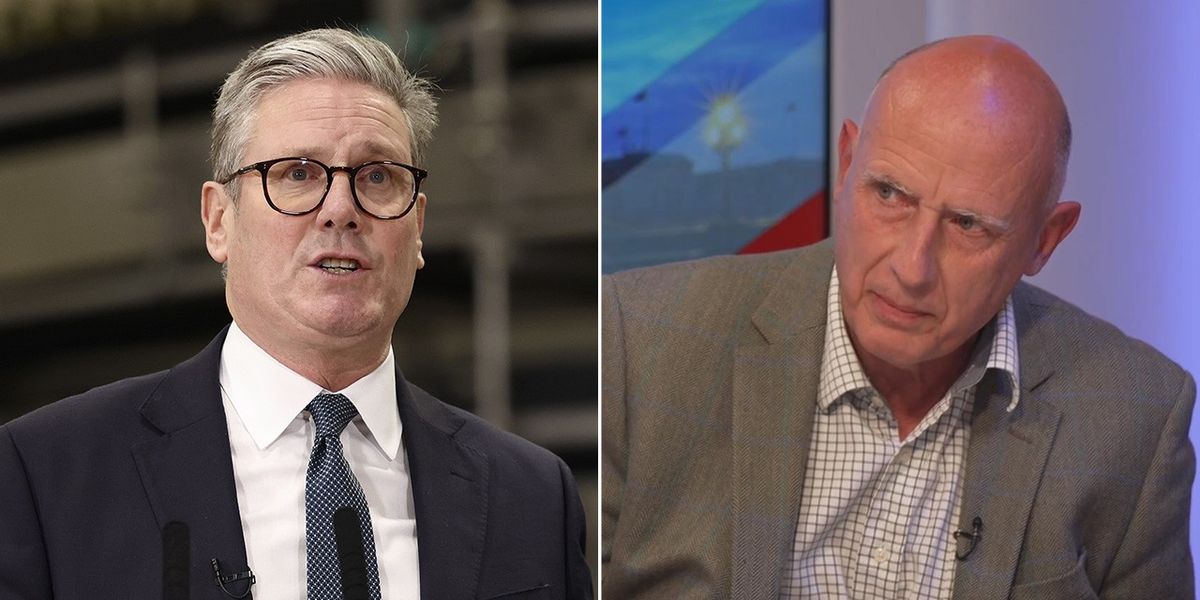SAS Veterans Call for Review of European Convention of Human Rights: A Plea for Soldiers’ Protection
In a bold move that has captured public attention, three veterans from the Special Air Service (SAS) have stepped out of the shadows after three decades of silence. They are urging Prime Minister Sir Keir Starmer to reconsider the implications of the European Convention on Human Rights (ECHR) for British soldiers engaged in combat against terrorism. Their letter, published in The Times, highlights a growing concern that the legal framework is endangering the very personnel tasked with protecting the nation.
The Veterans’ Concerns
The veterans—Aldwin Wight, George Simm, and Jamie Lowther-Pinkerton—served in the command team of the 22 SAS regiment and have expressed their deep concern for the welfare of current and former soldiers. They argue that British soldiers are "gravely threatened today" by the potential for legal repercussions stemming from their actions during combat. The letter emphasizes that this situation represents a "dangerous failure of democracy" and a breach of the Military Covenant, which is meant to ensure mutual support between the armed forces and the government.
In their communication, the veterans articulated a sense of betrayal, stating, "This betrayal of their SAS veterans, who need their support, not least so others like them will step forward in the future." Their plea is not merely about legal protections; it is a call to honor the sacrifices made by soldiers who have served in perilous conditions.
The Impact of Legal Proceedings
During a discussion on GB News with Nigel Farage, the veterans elaborated on the ramifications of the ECHR on soldiers. Lowther-Pinkerton pointed out that many of the soldiers they commanded have faced prolonged scrutiny and legal challenges long after their service. He noted that while these soldiers acted lawfully at the time, they have been subjected to relentless investigations that can last decades.
Simm added a poignant perspective, revealing that some veterans have suffered severe mental health issues as a result of being accused of wrongdoing. He recounted the story of a fellow veteran who was convicted while mentally ill, highlighting the unfairness of the legal process. "It’s our job. The nation state demands that we defend our people," he stated, emphasizing the moral and legal complexities faced by soldiers in the line of duty.
The Role of the ECHR
The European Convention on Human Rights was incorporated into UK law in 1998, establishing a framework that allows individuals to seek justice for alleged violations of their rights. However, the veterans argue that this framework has inadvertently created a hostile environment for soldiers. Wight pointed out that while soldiers are trained to adhere to strict rules of engagement, the retrospective application of ECHR provisions allows for complaints to be lodged long after the fact, creating a chilling effect on military operations.
He warned that if potential recruits are deterred from joining the armed forces due to fears of legal repercussions, the UK risks losing vital capabilities in counterterrorism. "If you put people off joining, volunteering, you will eventually lose the capability which is actually essential to your national strategy of counterterrorism," he cautioned.
Government Response
In response to the veterans’ concerns, the Ministry of Defence has maintained its longstanding policy of not commenting on UK Special Forces activities. This silence has left many questioning the government’s commitment to supporting its armed forces, particularly in light of the veterans’ urgent plea for reform.
Conclusion
The call to review the European Convention on Human Rights by these SAS veterans is a significant moment in the ongoing debate about the balance between human rights and national security. Their courageous decision to speak out after years of silence underscores the pressing need for a reassessment of how legal frameworks impact those who serve in the armed forces. As the UK grapples with the complexities of modern warfare and the legal implications of military actions, the voices of these veterans serve as a poignant reminder of the sacrifices made by those who defend the nation. The question remains: will the government heed their call for change?
